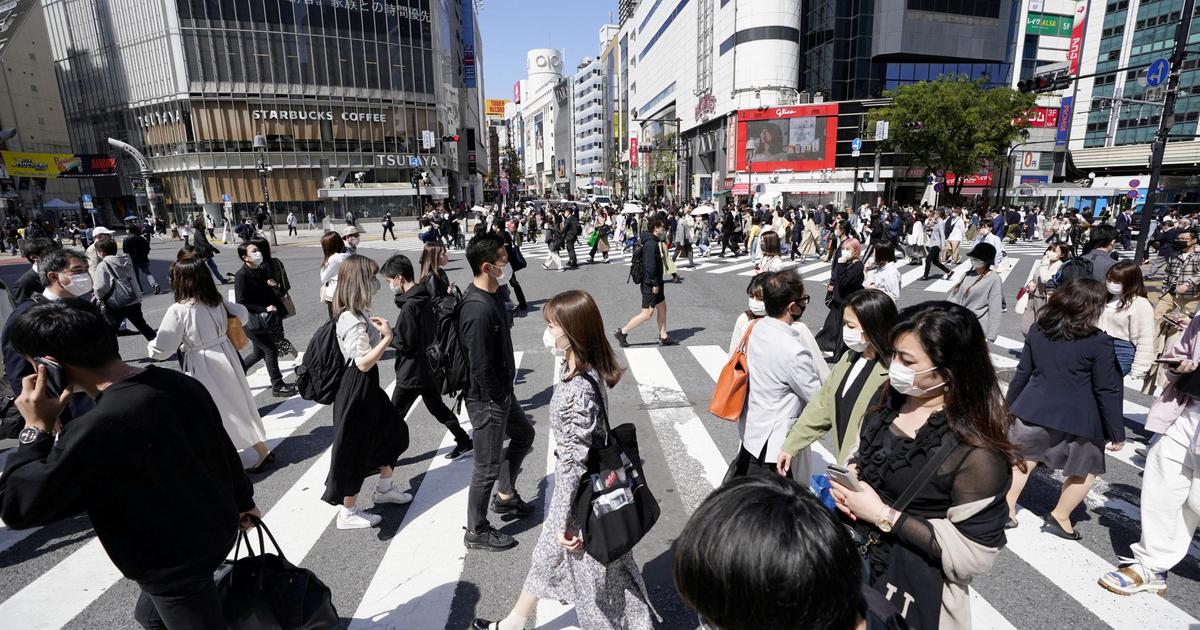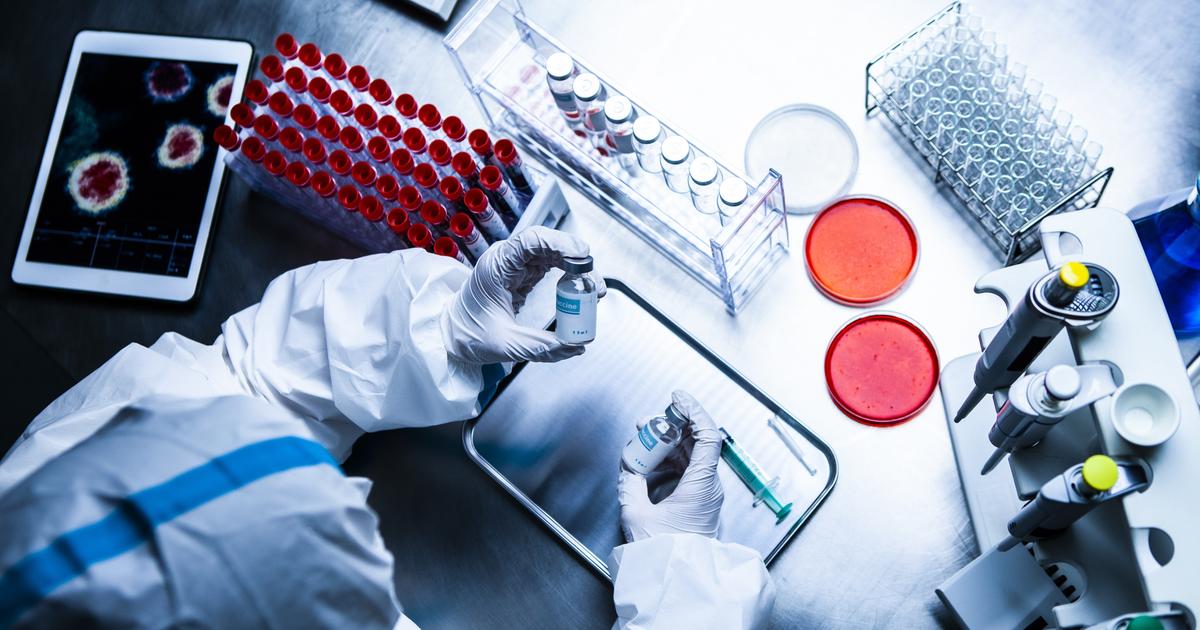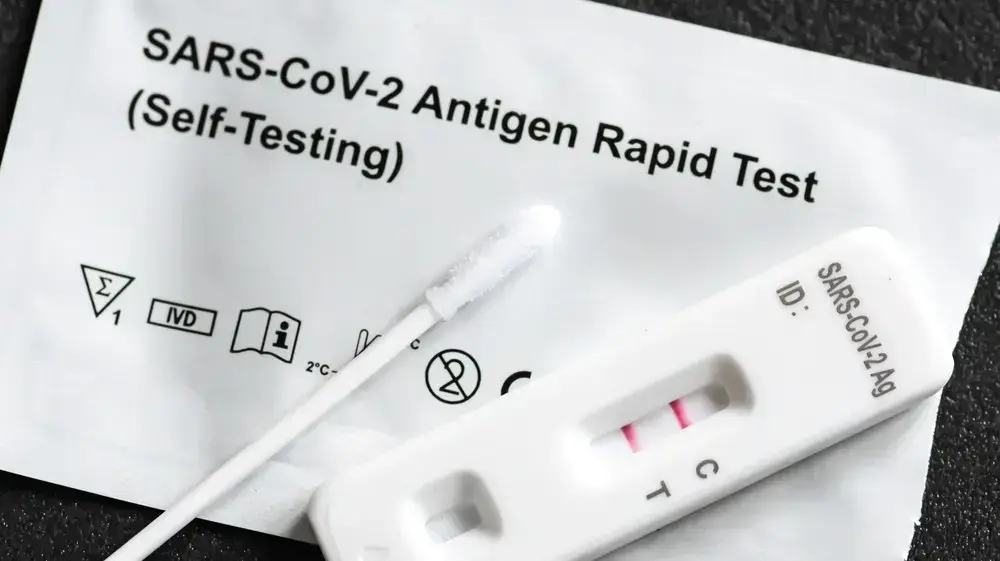A medicine stall in the Tepito market. Quetzalli Nicte Ha
The new wave of coronavirus infections has resulted in a business opportunity for the illegal market. In the heart of the Tepito neighborhood, in Mexico City, a cathedral of informality and pirated products, a dozen stores offer at minimum prices everything from blood tests to detect covid-19 to drugs such as ivermectin, a medicine veterinary whose use spread from a hoax and that does not have approval from the health authorities to combat the disease. "Yes, there are tests, only that they expire in July, they are blood and they are from China, they cost 1,000 pesos with 20 [tests] and they come with a diluent to start it," reports the merchant.
While people queue for miles at public health centers or pay for PCR tests in private laboratories at more than 3,200 pesos, in this market where pirated products reign, behind the scenes and under the promise of advance payment, the supply of coveted test to detect the virus. The same merchants acknowledge that the increase in infections has made it increasingly difficult to find these tests and has multiplied their price: “If you buy wholesale, the box, you get about 180 pesos each, is that everyone wants those, they are overvalued because last year they were at 70 pesos”, mentions a dealer.
Among the dozens of clothing, cosmetic and electronic stalls, the illegal offer of this type of test prevails despite the fact that last week the Federal Commission for the Protection against Sanitary Risks (Cofepris) issued a warning that these detection methods were not effective. "These tests use a blood sample to detect antibodies against the SARS-CoV-2 virus, but they are not useful for diagnosing the active presence of the virus, and even during the acute phase of the disease they can give negative results," they warned. Mexican health authorities.
Without a prescription and in broad daylight, the merchants of these illegal pharmacies offer everything from antibiotics, painkillers, contraceptives and anticovid remedies. All at auction price. A box of ivermectin – a medicine that became popular since the beginning of the pandemic after the idea spread that it was an effective treatment against covid – with four tablets at a Tepito stand costs from 50 to 120 pesos. The cost decreases if it is supplied in bulk: "I have Maver's, it is generic, but it is good, with two tablets at 30 pesos, but we need to work the complete package of 380 pieces," offers a merchant in the rough neighborhood of the capital. The black market for medicines has become an alternative to face a galloping pandemic that adds more than 4.4 million infected in Mexico and exceeds 300.000 deaths.
In a country where the daily minimum wage in most of the country is 172 pesos, the attractiveness of the price prevails over health security.
Despite the risk that it is a counterfeit or stolen medicine, customers come to these points of sale with a visibly more attractive offer compared to the formal market, for example, the cost of patent ivermectin in an established pharmacy exceeds 195 pesos.
Thus, this medicine continues to be sold freely on the streets of Mexico City, although since November 2020 Cofepris issued a health alert due to the counterfeiting of the drug.
Merchants in the Tepito market offer prescription medicines for sale. Quetzalli Nicte Ha
Juan de Villafranca, executive director of the Mexican Association of Pharmaceutical Laboratories (Amelaf), warns that cases of counterfeiting are proliferating, where the packaging is exactly the same as the original, but they are only placebos, pills with sugar or expired medications. "The profit margin of these pirate medicines is very high, the other reason, if at a given moment there is a shortage of medicines and it turns out that they find that medicine in a street market, they buy it, but that product can even kill," he says.
The Amelaf representative insists that this black market has proliferated beyond the Valley of Mexico, in the center and north of the country.
“The authority must act with much more energy, it must carry out more operations and it must launch health alerts quickly to counteract this problem that affects the economy of laboratories, but the most delicate thing is that they are putting health at risk. ”, ditch.
Santo Domingo, neighborhood of XV-year invitations and false covid certificates
In the middle of Plaza de Santo Domingo, in the historic center, a handful of men offer a covid vaccination certificate in whispers for 1,800 pesos. The man who speaks between his teeth, with a hat and sunglasses, assures that it is an 80% clone of the original document. "You have it in less than an hour, I just need name, date of birth and age," he says. The price of the certificate drops to one thousand pesos if it is delivered without the QR code.
The site, famous for offering everything from invitations to parties, weddings, voter credentials and false birth certificates, has now found a new business niche in the face of the galloping escalation of fourth wave infections and the requirements of companies and tourists to know as much your vaccination schedule and your health status.
Thus, under the shelter of the arches of the plaza in the historic center, a dozen men display from their cell phones a variety of alleged covid tests from public and private laboratories.
The "positive" or "negative" result depends on the applicant's preference, the prices of these alleged tests range from 600 to 800 pesos.
subscribe here
to the
newsletter
of EL PAÍS México and receive all the informative keys of the current affairs of this country















